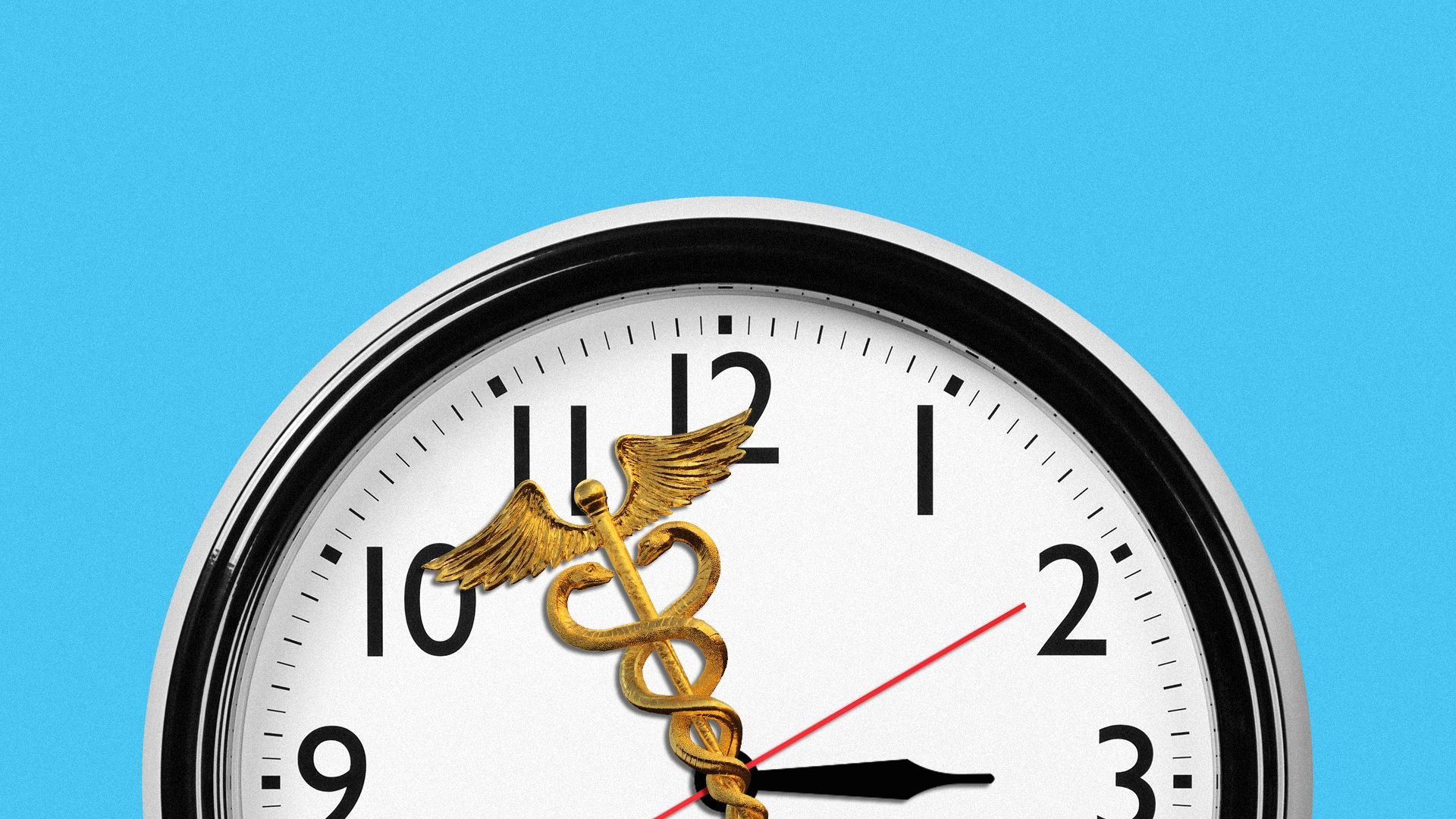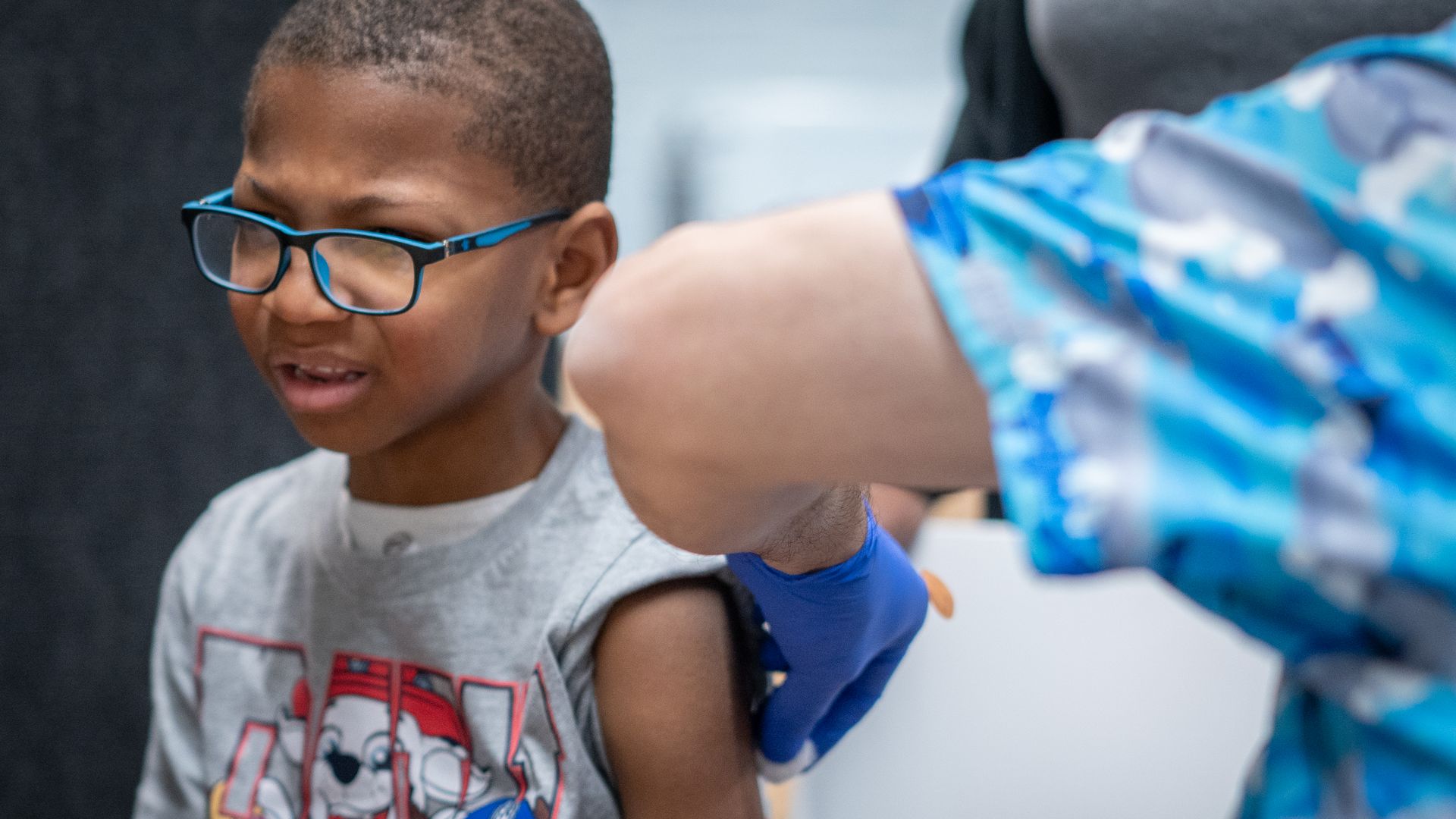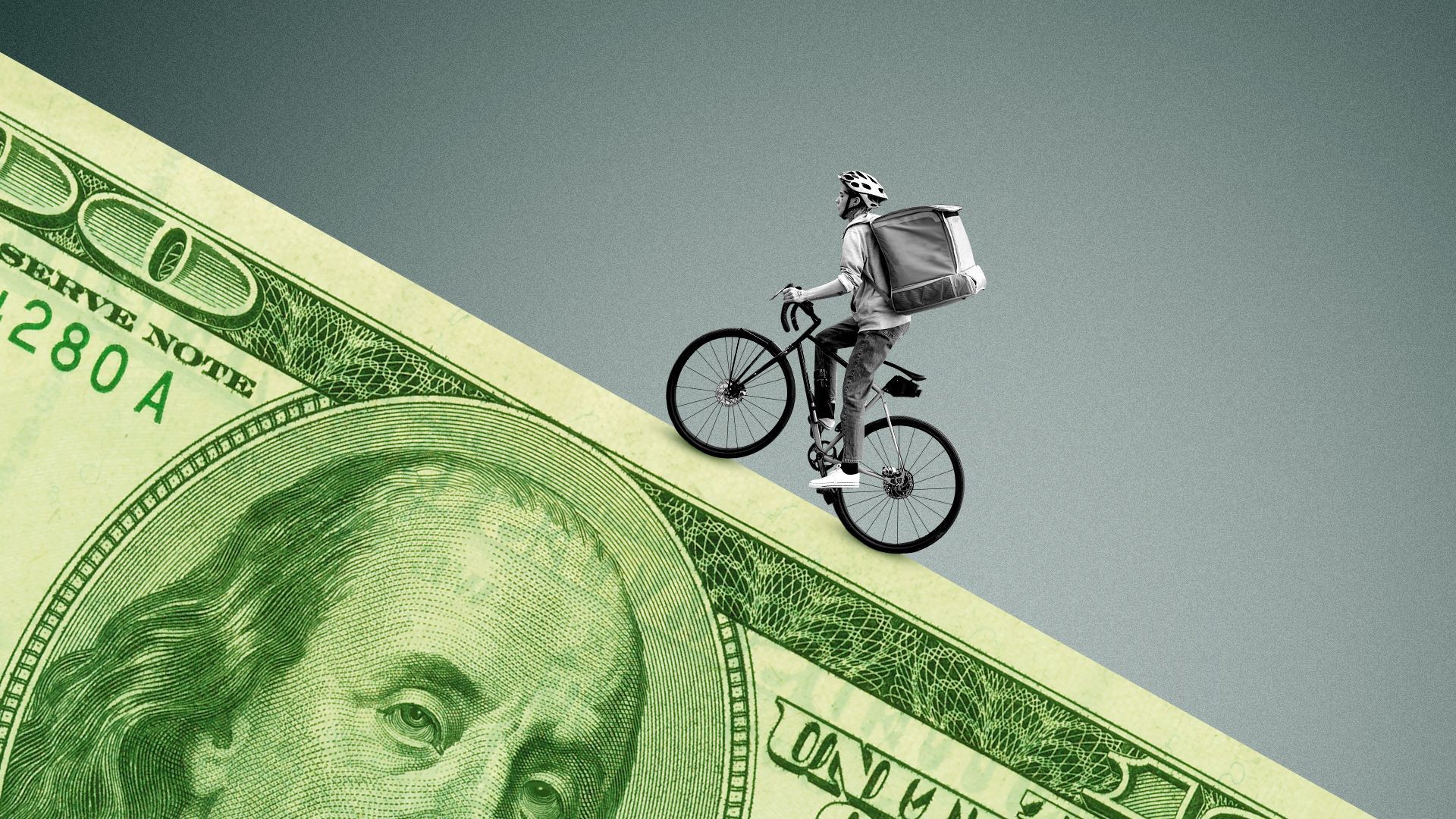|
||
| PRESENTED BY AMERICAN BEVERAGE | ||
| Axios Vitals | ||
| By Maya Goldman and Tina Reed · Jul 07, 2025 | ||
|
Welcome back! Today's newsletter is 906 words or a 3.5-minute read. |
||
| 1 big thing: GOP megabill's delayed health effects | ||
| By Maya Goldman | ||

|
||
|
Illustration: Lindsey Bailey/Axios |
||
|
President Trump's tax and spending bill set in motion nearly $1 trillion in cuts to Medicaid and other health policy changes that could loom over the midterm elections.
Why it matters: Bill supporters could be insulated from political blame by a slow drip of policy changes that will play out over the next decade — a contrast to when Republicans tried to repeal Obamacare in 2017.
What's inside: Medicaid work requirements, which account for many of the nearly 12 million people projected to lose coverage under the bill, generally won't kick in until 2027, and some states could get extensions. Yes, but: People covered through the Affordable Care Act exchanges will see changes more swiftly. The bill does not extend the Biden-era enhanced premium subsidies that expire at year's end, and the GOP-led Congress has shown little appetite for finding other legislative vehicles.
Reality check: Hospitals and clinics have to plan ahead and already are making contingencies for the Medicaid cuts and coverage losses. That could translate into facility closures or the elimination of some services. |
||
|
|
||
| 2. Measles cases on track to hit record high | ||
| By Tina Reed | ||

|
||
|
Xerius Jackson, age 7, gets an MMR shot at a vaccine clinic put on by the Lubbock Public Health Department in Texas. Photo: Jan Sonnenmair/Getty Images |
||
|
There have been 1,267 confirmed cases of measles in the U.S. this year, almost 4.5 times the total for all of last year and on track to pass the highest annual count since the disease was declared eliminated in 2000, according to the CDC. Why it matters: While the disease isn't consistently spreading due to immunization campaigns, there have been outbreaks well beyond West Texas, where low immunization rates and high school exemptions stoked spread of the highly contagious virus early this year. Driving the news: 27 outbreaks have been reported in the U.S. so far this year, accounting for 88% percent of the cases. In comparison, there were 16 outbreaks in all of 2024, and 69% of cases were associated with them.
|
||
|
|
||
| 3. Zyn becomes America's new addictive obsession | ||
| By Nathan Bomey | ||
 Data: Philip Morris International; Chart: Axios Visuals It's not food, it's not chewing tobacco and it's not gum — though it might look like it when you see it — but it is becoming America's new addictive obsession. Why it matters: Sales of Zyn nicotine pouches are soaring, prompting the tobacco company that makes them to scramble to boost U.S. production to meet demand. The big picture: People are popping nicotine pouches into their mouths at games, at the movies, at the workplace, at home, at the store — it's America's new addictive habit.
How it works: Zyn pouches are placed between the gum and lip, gradually releasing nicotine over time.
Threat level: The product is addictive because nicotine is addictive.
|
||
|
|
||
|
A MESSAGE FROM AMERICAN BEVERAGE |
||
| America’s beverage companies have transformed the beverage aisle | ||
|
|
||
|
America’s beverage companies are providing Americans with the choices they want and the information they need to make the best decisions for their families. We’ve transformed the beverage aisle and are empowering Americans to find balance. |
||
| 4. GOP eyes "portable benefits" for gig workers | ||
| By Emily Peck | ||

|
||
|
Illustration: Aïda Amer/Axios |
||
|
Senate health committee Chair Bill Cassidy (R-La.) is due to unveil a bill today that would make it easier for companies to offer benefits to gig workers without making them full-fledged employees. Why it matters: As more Americans turn to gig work and self-employment, there's a growing push to get them access to things like paid sick leave, health insurance and retirement benefits. Zoom in: The bill is part of legislative package from Cassidy, along with Sen. Tim Scott (R-S.C.) and Sen. Rand Paul (R-Ky.). How it works: Under the legislation, companies would be able to voluntarily offer benefits without taking on the liabilities involved in actually employing these workers and having to pay for unemployment insurance, overtime pay and workers' comp. The big picture: There's been a decade-long fight over the employment status of gig workers.
|
||
|
|
||
| 5. While you were weekending | ||

|
||
|
Illustration: Sarah Grillo/Axios |
||

